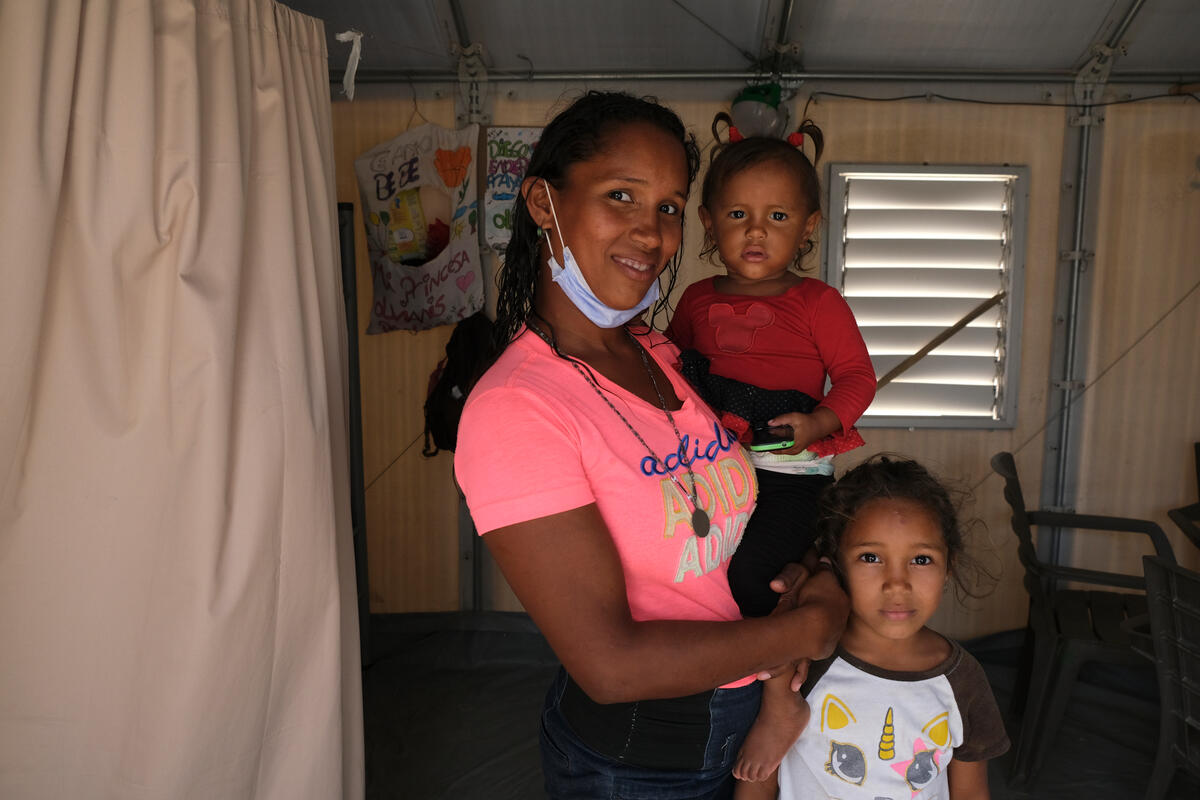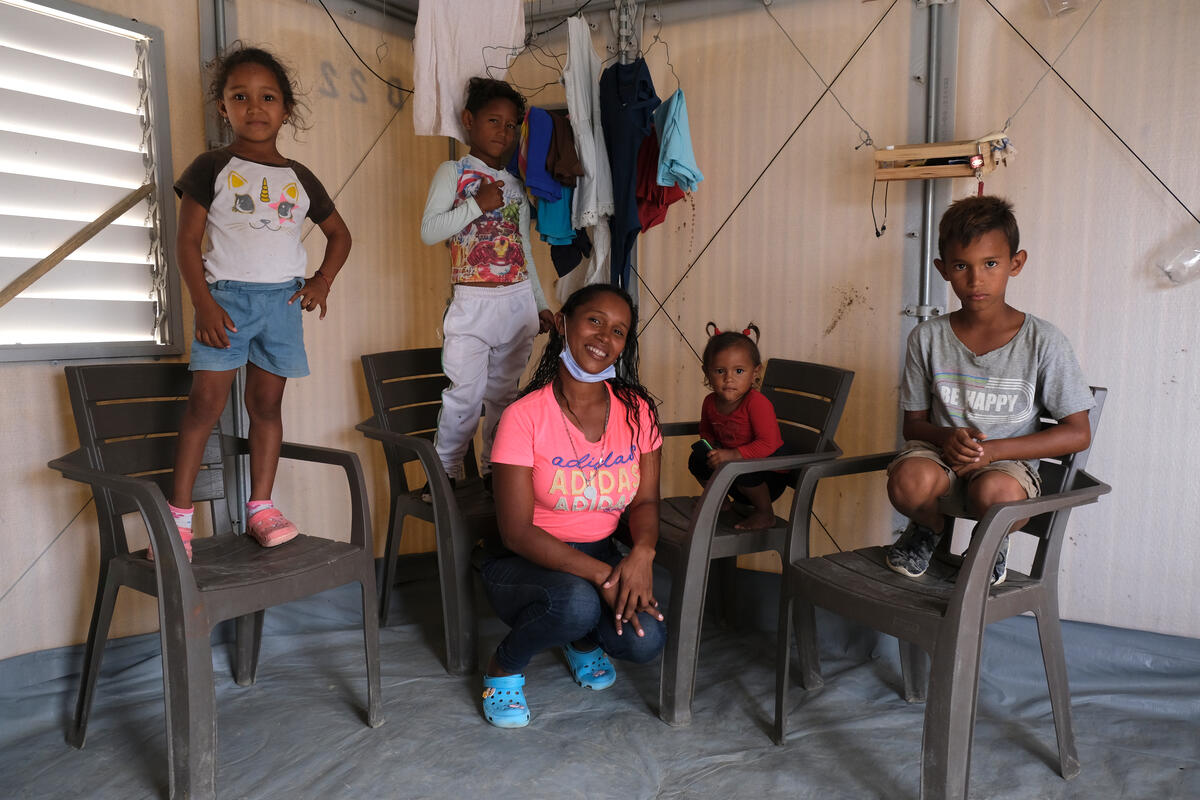Venezuelans defy the pandemic to seek a future in Colombia
When Verónica Petit’s daughter Franyimar was just a year old, she began to suffer from mobility problems due to the irregular growth of the bones and tendons in her right foot. Doctors told Veronica that without an operation, little Franyimar would have to rely on crutches for the rest of her life.
But the 26-year-old single mother of four young children did not have the means in her native Venezuela to access specialized surgery for the now-five-year-old Franyimar. She knew that her only chance was to seek help abroad.
“They (my children) are the motor that is pushing me forward,” said Verónica.
The family is one of many who have sought safety in Colombia. An estimated 5.4 million Venezuelan refugees and migrants are displaced abroad, having fled widespread food and medicine shortages and insecurity back home. The situation in Venezuela represents one of the largest displacement crises in recent history.
“Many Venezuelans lack any legal status. This means they are marginalised and vulnerable to exploitation.”
And while COVID-19 restrictions briefly slowed the pace with which Venezuelans had been leaving their country over the past year, many have once again begun to make the arduous journey across the region, seeking to meet their basic needs. Those who arrive in Colombia today tend to be in even more dire circumstances than those who fled two years ago. Many Venezuelans are now arriving exhausted, weak and penniless, often with no option but to sleep on the streets or in bus terminals, where they are at even greater risk of exposure to COVID-19.
Working odd jobs back home in the northern Venezuelan city of Maracaibo, Verónica could barely put food on the table. Hungry and desperate, the family crossed the border to Maicao, where they slept in a bus station every night. Verónica worked for a local woman in exchange for one meal a day, which she would split five ways between herself and her children.
The family was eventually offered a spot in the city’s Integrated Assistance Centre, or CAI, with the help of aid workers from UNHCR, the UN Refugee Agency. Established by the Colombian government and the international community, the transit shelter provides temporary housing and lifesaving assistance to homeless Venezuelans in vulnerable situations similar to Verónica’s.
During a visit to the CAI on Saturday 8 February, UN High Commissioner for Refugees Filippo Grandi had the opportunity to meet Verónica, together with other Venezuelan families who are struggling to rebuild their lives. Of the 1.7 million Venezuelans currently in Colombia, more than half are in an irregular situation.
“Many Venezuelans still haven’t been able to regularise their stay in Colombia and lack any legal status in the country. This means they are not only marginalised but also vulnerable to exploitation,” Grandi said, underscoring that regularisation would mean more predictable access to employment and to services such as health care and education.
“I hope to be regularised here in Colombia so my daughter can get the surgery she needs.”
The High Commissioner’s visit comes at a time when countries across the region are struggling to cope with the impact of COVID-19, which has taken hundreds of thousands of lives throughout Latin America and has left a devastating toll on the region’s economy.
“I want to share a message of great appreciation to the government and the people of Colombia for their generosity towards Venezuelan refugees and migrants,” said Grandi. He noted, however, that this generosity should not be taken for granted and made a strong appeal for more international support for Colombia.
- See also: Forced back home by the pandemic, Venezuelan grandmother sees no choice but to flee once again
Verónica and her children are among the hundreds of thousands of Venezuelan refugees and migrants with no official status in Colombia. She says it has prevented her from getting a job and enrolling the kids in school. It has also made it impossible to get little Franyimar the medical attention she so desperately needs.
“I hope to be regularised here in Colombia in order for my daughter to be able to get the surgery she needs, for my children to go to school and to be able to work and give them a better life,” she said, adding that she dreams of opening her own bakery someday and serving up the chocolate cake and other treats that are among her children’s favourite foods.












